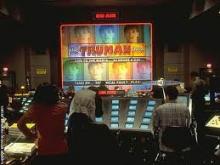Turns out that some people take this same passing fancy more seriously than I did. Convinced that their whole lives are filmed, these people have a disorder that has been tentatively diagnosed as The Truman Show syndrome or delusion.
The Truman Show depicted the life of Truman Burbank, played by Jim Carrey, a man who lived his life unknowingly on a massive reality TV set. Truman’s friends, family and the members of his town are all actors and his entire town is really a huge television set. Everything that happens to Truman is scripted—except for the way he reacts to the people and situations that are thrown at him.
Joel Gold, a psychiatrist at New York City’s Bellevue Hospital Center and his brother Ian, a Philosophy and Psychiatry professor at McGill University in Montreal, coined the term The Truman Show delusion in 2008. They came up with the term after they met five schizophrenic patients, and heard about twelve more--mostly white men from the ages of 25 to 34--who thought that their lives were reality shows. Three of the patients out of the Golds’ original five linked their reality show delusions with The Truman Show.
The Golds deem the syndrome to be persecutory, or linked to psychosis as well as grandiose, in that patients believe the world’s events are linked to their singular lives. Some patients were pleased with their delusions—those with grandiose delusion, while others—the individuals with persecutory delusions—were made miserable by it.
The Golds believe that the syndrome has become present in a modern day society obsessed with publicity and coverage of personal lives. According to psychologists, technologically based delusions like this one are only possible in the modern day. Over the centuries, delusions have shifted from religious/magical delusions to political delusions to this, technological delusions.
Unlike Truman Burbank, patients with this syndrome think that cameras are following them. There have been several recorded instances of The Truman Show delusion. Believing that the attacks were part of his reality show’s plot, one man had to travel to New York City to see that the World Trade Center towers had actually fallen.
Another man climbed to the top of the Statue of Liberty, thinking he would reunite with his high school girlfriend and be released from his show—a similar fate to Truman Burbank’s.
Another patient was an intern on a reality TV, but believed that cameras were tracking him all the time. He thought that he was being followed at the polls during the presidential election in 2004 and shouted “Judas” at the cameras, an act that caused the Golds to track him down.
The Truman Show Syndrome is not officially recognized and is not listed in the Diagnostic and Statistical Manual of the American Psychiatric Association.
